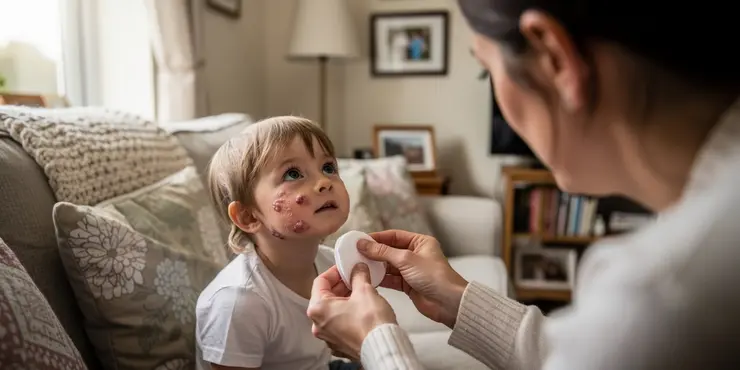
Find Help
More Items From Ergsy search
-
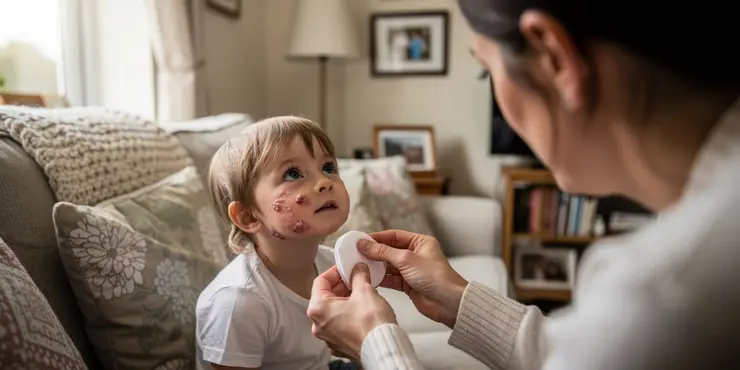
Can impetigo spread to other parts of my body?
Relevance: 100%
-
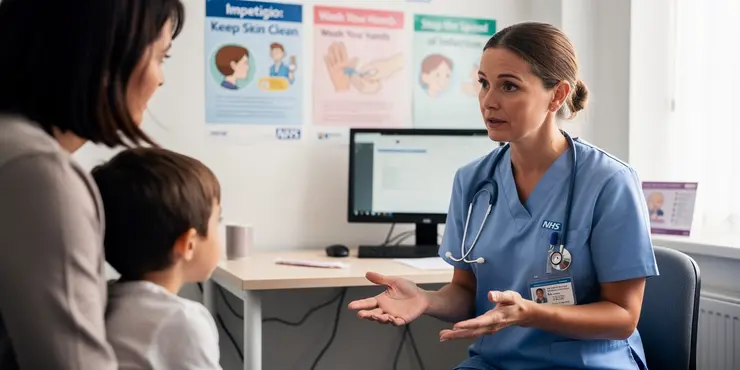
How can I prevent the spread of impetigo?
Relevance: 79%
-

Is impetigo contagious?
Relevance: 67%
-
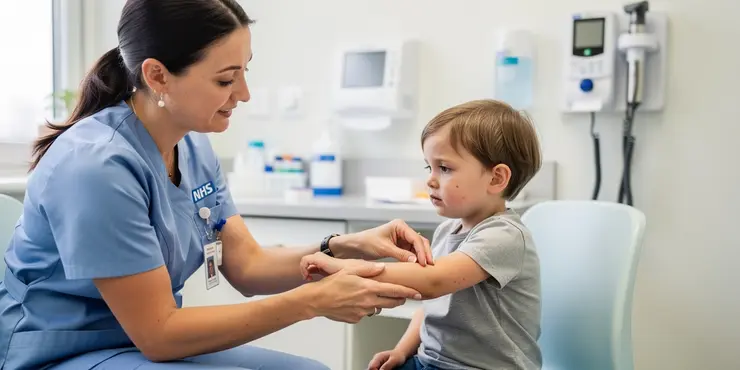
Is there a vaccine for impetigo?
Relevance: 65%
-
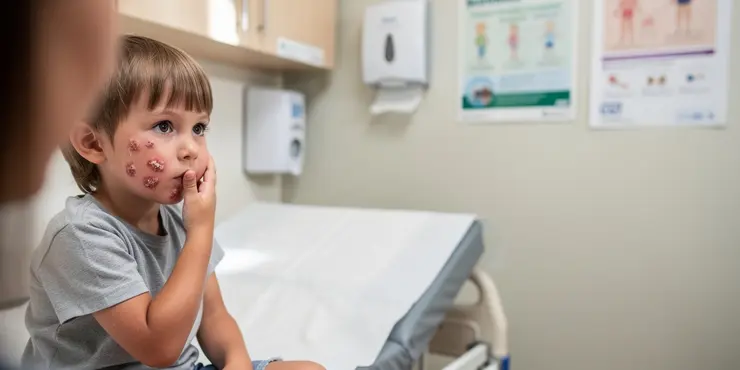
Is impetigo painful?
Relevance: 63%
-

Pharmacy First – Impetigo Service
Relevance: 62%
-

Can impetigo become serious?
Relevance: 62%
-
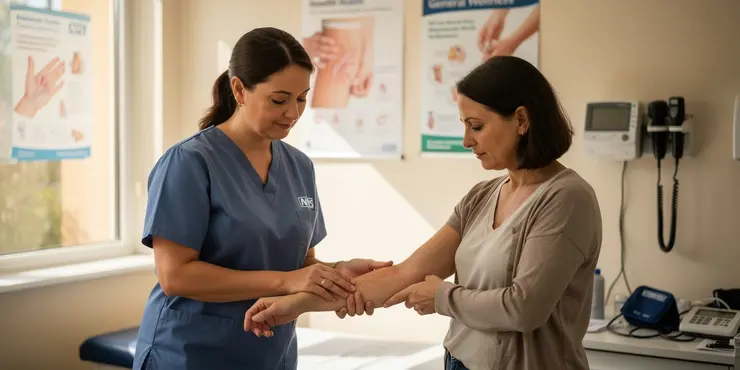
Can adults get impetigo?
Relevance: 61%
-

How can I tell if I have impetigo?
Relevance: 60%
-

Minor ailment scheme - Impetigo
Relevance: 60%
-
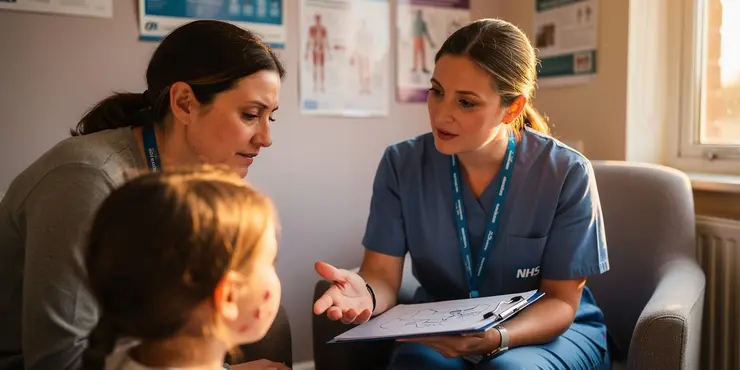
How is impetigo treated?
Relevance: 60%
-

Are there any home remedies for impetigo?
Relevance: 58%
-
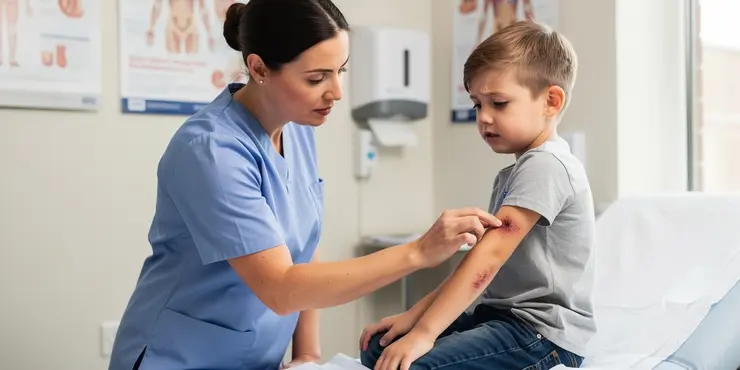
Can I get impetigo more than once?
Relevance: 57%
-

How long does it take for impetigo to heal?
Relevance: 55%
-

When should I seek medical help for impetigo?
Relevance: 55%
-

Can testicular cancer spread to other parts of the body?
Relevance: 49%
-
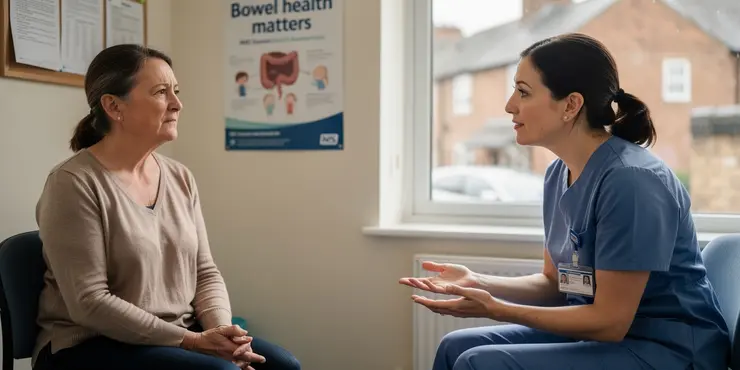
Can bowel cancer spread to other parts of the body?
Relevance: 48%
-
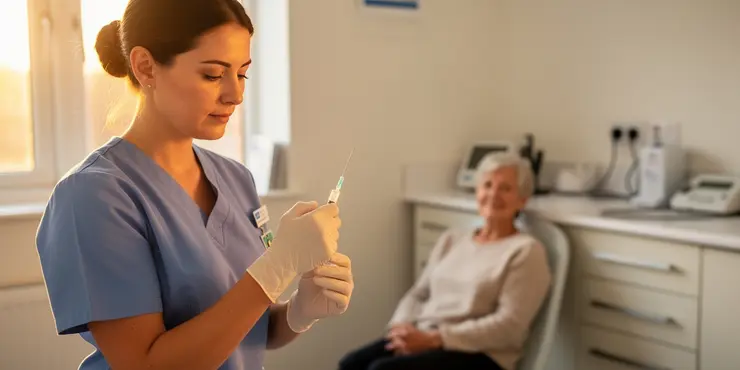
Can Botox spread to other parts of the body?
Relevance: 41%
-
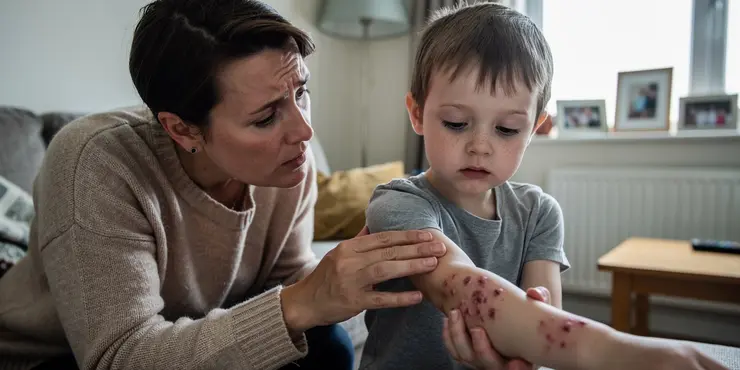
What should I do if my child has impetigo?
Relevance: 40%
-

How is measles spread?
Relevance: 35%
-
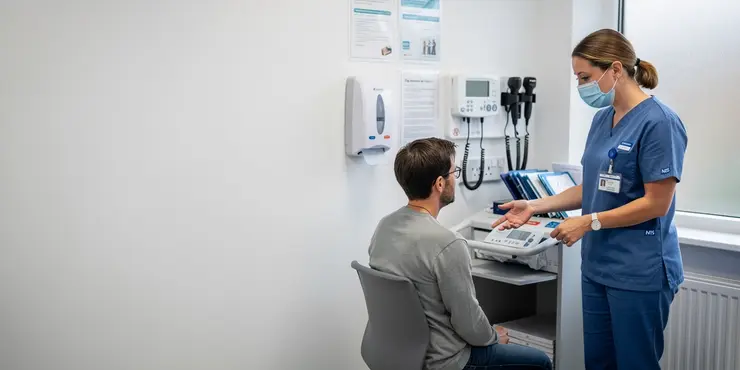
How is viral meningitis spread?
Relevance: 34%
-
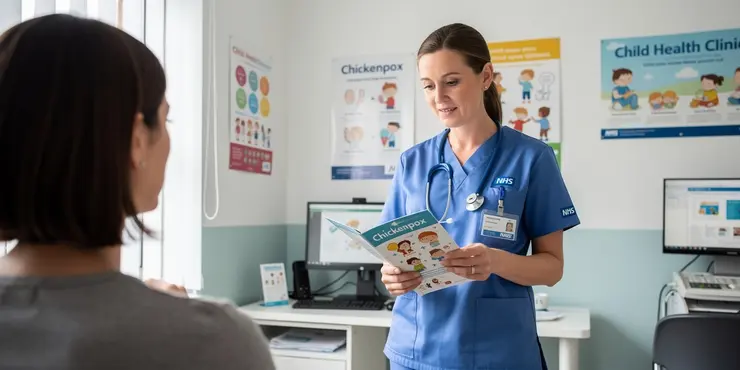
How is chickenpox spread?
Relevance: 33%
-

Is malaria spread by mosquitoes in the UK?
Relevance: 33%
-
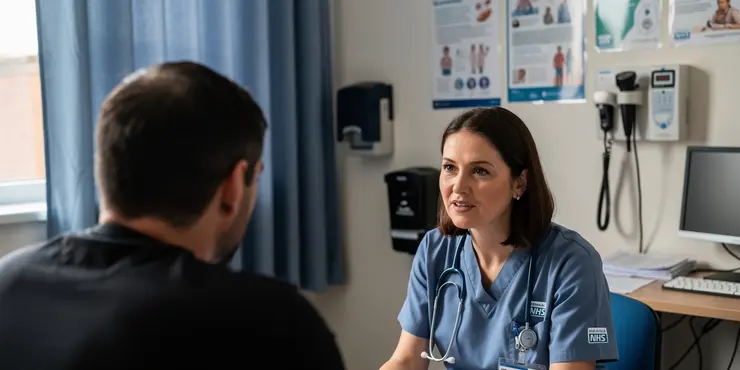
How is norovirus spread?
Relevance: 33%
-

Is there a risk of global spread if measles cases rise in the UK?
Relevance: 30%
-
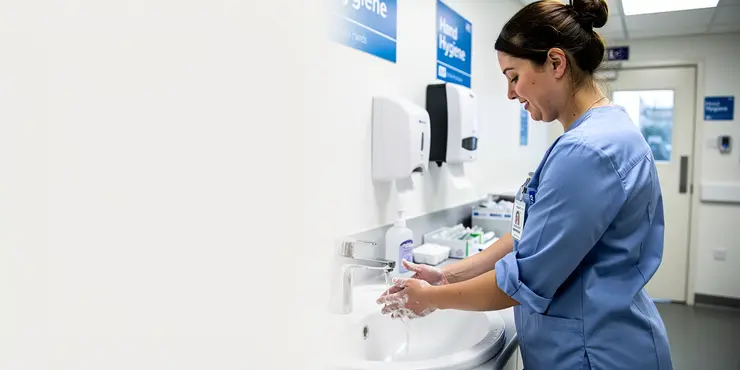
How can I prevent spreading my cold to others?
Relevance: 29%
-

Are AI body scans reliable?
Relevance: 29%
-
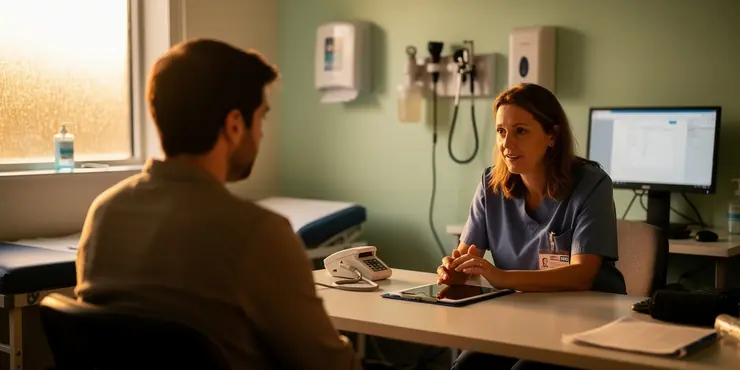
Why do some variants spread more easily?
Relevance: 29%
-
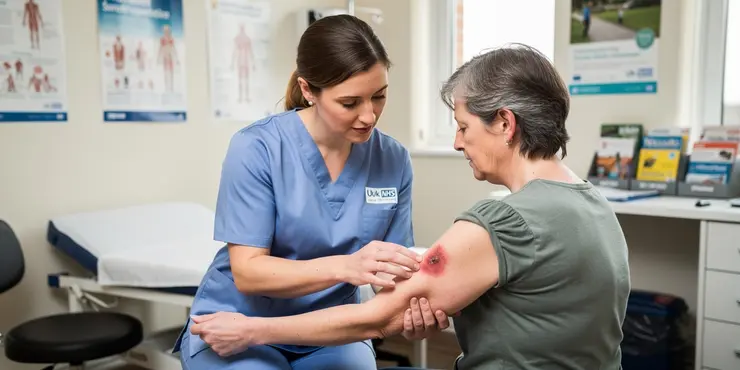
How does flesh-eating disease spread?
Relevance: 29%
-
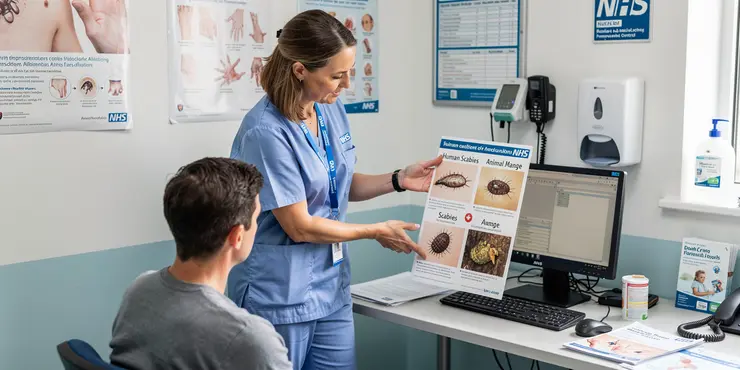
Can animals spread scabies to humans?
Relevance: 29%
-
Is salt necessary for the body?
Relevance: 28%
-
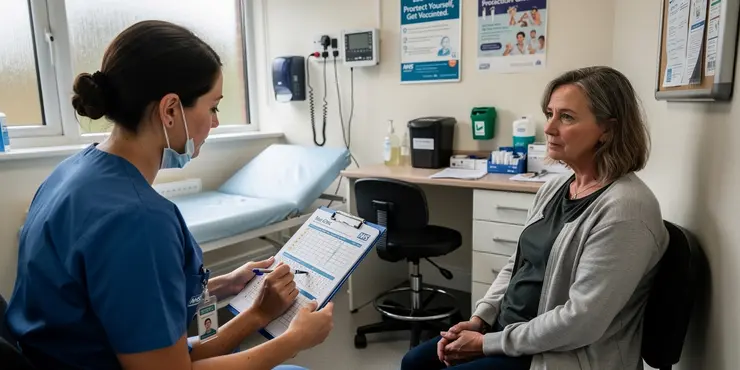
Is there a risk of yellow fever being spread by mosquitoes in the UK?
Relevance: 28%
-
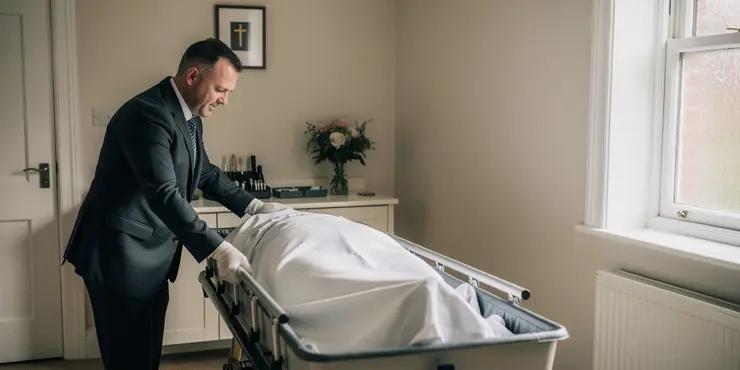
Are there regulations on transporting the body before the funeral?
Relevance: 27%
-
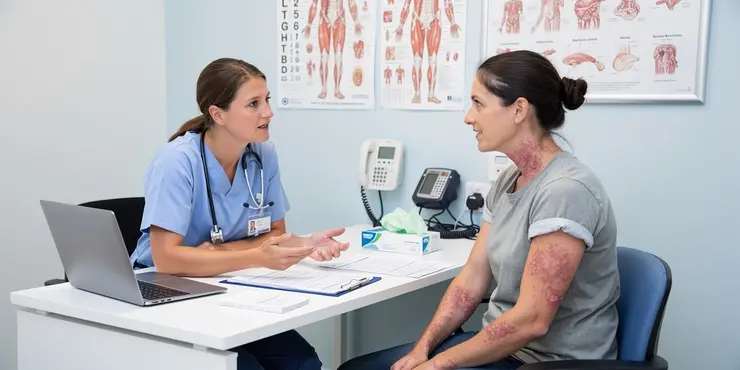
Can nettle rash spread from person to person?
Relevance: 27%
-
How can healthcare providers prevent the spread of flesh-eating bacteria in hospitals?
Relevance: 26%
-
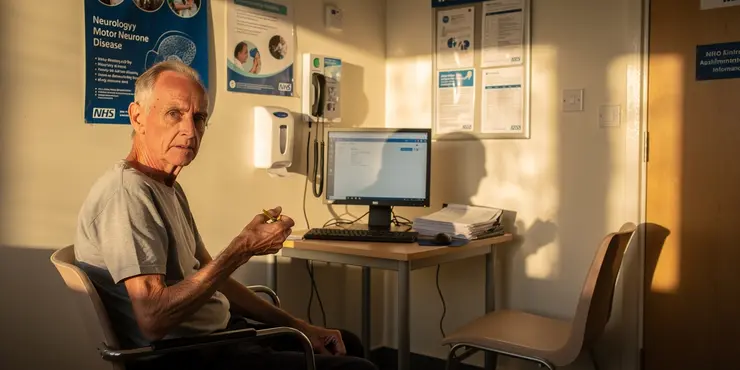
How does motor neurone disease affect the body?
Relevance: 25%
-
How does the body process salt?
Relevance: 25%
-
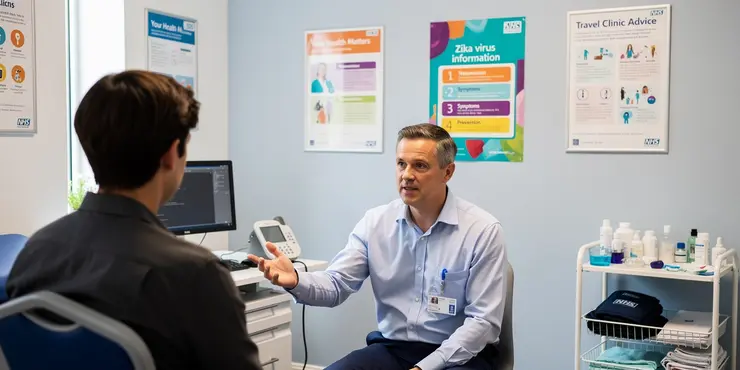
Can Zika virus be spread from person to person in the UK?
Relevance: 25%
-

Where is GLP-1 produced in the body?
Relevance: 24%
-

Can cytomegalovirus (CMV) be spread through transfusions?
Relevance: 24%
Understanding Impetigo
Impetigo is a common and highly contagious skin infection affecting mainly children, but it can also occur in adults. It is primarily caused by Staphylococcus aureus and sometimes Streptococcus pyogenes bacteria. The condition is characterized by red sores or blisters that burst, leaving crusty, golden-brown patches. These sores are typically found on the face, especially around the nose and mouth, but they can appear anywhere on the body.
Can Impetigo Spread to Other Parts of the Body?
Yes, impetigo can spread to other parts of the body. The spread occurs mainly through direct contact with the sores or with items like towels, clothing, or bedding that have been in contact with an infected area. Scratching the sores can lead to the bacteria being transferred to the nails or fingers, which can then carry the infection to other areas of the skin.
The process of spreading is referred to as autoinoculation. This means that an individual can transfer bacteria from an impetigo sore to another location on their body, potentially leading to new sores developing elsewhere. Therefore, it's crucial to avoid touching or scratching the affected areas and maintain good hygiene to minimize the risk of spreading the infection.
Preventive Measures
To prevent the spread of impetigo to other parts of the body, as well as to other people, several preventive measures can be implemented. Keeping sores clean and dry is vital. Gently washing affected areas with soap and water, followed by covering them with gauze or a bandage, can help reduce the risk of spreading. Trimming fingernails short and keeping hands clean can also help prevent the bacteria from transferring to other areas of the body.
Additionally, avoid sharing towels, flannels, clothing, or bed linen with others until the infection has cleared. Washing clothes and bedding at high temperatures can help kill the bacteria, reducing the risk of reinfection or spreading it to others in the household.
Treatment Options
Effective treatment can help stop the spread of impetigo. Typically, a doctor will prescribe an antibiotic cream or ointment to be applied directly to the sores. In more severe cases, oral antibiotics may be necessary. Following the prescribed treatment plan and completing the full course of antibiotics, even if the symptoms improve, is essential to prevent recurrence and further spread.
With appropriate care and treatment, impetigo usually clears up within a week to ten days. However, if the condition does not improve or if new sores continue to appear, it is important to seek further medical advice. By following these preventative and treatment measures, the spread of impetigo can be effectively managed and contained.
Understanding Impetigo
Impetigo is a skin infection that spreads very easily. It mostly affects children, but adults can get it too. It is caused by germs called bacteria: mainly Staphylococcus and sometimes Streptococcus. Impetigo looks like red sores or blisters that burst open. When they dry up, they leave behind crusty, golden-brown spots. The sores are often on the face, like around the nose and mouth, but they can be anywhere on the body.
Can Impetigo Spread to Other Parts of the Body?
Yes, impetigo can spread to other parts of your body. It spreads mostly by touching the sores or using things like towels, clothes, or bedding that touched the sores. If you scratch the sores, the germs can get under your nails or on your fingers. Then, they can move to other parts of your skin and make new sores.
This spreading is called "autoinoculation." It means you can spread the germs to different parts of your body. It is important not to touch or scratch the sores. Try to keep everything clean to stop the germs from spreading.
Preventive Measures
Here are ways to stop impetigo from spreading to your body or other people. Keep the sores clean and dry. Wash the sore spots gently with soap and water. Cover them with gauze or a bandage to stop spreading. Keep your fingernails short and wash your hands often to stop germs from getting to other parts of your body.
Do not share towels, washcloths, clothes, or bed sheets with others until the sores are gone. Wash clothes and bedding in hot water to kill the germs. This helps stop the germs from spreading to other people in the house.
Treatment Options
Proper treatment can help stop impetigo from spreading. A doctor may give you a cream or ointment to put on the sores. If it's more serious, you might need to take antibiotics by mouth. Follow the doctor's instructions and finish all the medicine, even if you feel better, to make sure the infection goes away completely.
With the right treatment, impetigo usually goes away in about a week to ten days. If it doesn’t get better or new sores appear, go back to the doctor. By following these tips for cleaning and treatment, you can manage and stop impetigo from spreading.
Frequently Asked Questions
What is impetigo?
Impetigo is a highly contagious bacterial skin infection that commonly affects children but can occur in people of all ages.
Can impetigo spread to other parts of my body?
Yes, impetigo can spread to other parts of your body, especially if you scratch or touch the infected area and then touch other areas.
How does impetigo spread on the body?
Impetigo spreads through direct contact with the lesions or by spreading bacteria from the infected area through touch, towels, or clothing.
What can I do to prevent impetigo from spreading on my body?
Keep the affected area clean, avoid scratching, wash your hands frequently, and use antibiotic ointments as prescribed by a doctor.
Is impetigo only contagious when there are sores?
Impetigo is most contagious when there are moist or crusty sores, but it can still spread by touching contaminated items.
Can impetigo spread through water?
Impetigo can spread in communal water environments like swimming pools if the water is contaminated with bacteria from an infected person.
Does scratching impact the spread of impetigo?
Yes, scratching can worsen the spread of impetigo by transferring bacteria to other parts of the body or onto objects you touch.
Are certain body parts more likely to become infected with impetigo?
Impetigo often infects areas that are frequently touched or where the skin is compromised, such as near the nose, mouth, or open cuts.
How quickly can impetigo spread on the body?
Impetigo can spread rapidly, especially if hygiene is poor or it goes untreated. Lesions can appear in other areas within days.
What should I do if new sores appear on different parts of my body?
Consult a healthcare provider. They may increase your medication or recommend further treatments to control the infection.
Can impetigo recur on the same parts of the body?
Yes, impetigo can recur, particularly if the underlying conditions that led to the initial outbreak are not addressed.
Is there a way to treat impetigo at home to prevent it from spreading?
Maintaining good hygiene, cleaning lesions, using prescribed topical antibiotics, and avoiding the sharing of personal items can help.
What complications can arise if impetigo spreads untreated?
Untreated impetigo can lead to deeper skin infections, such as cellulitis, or even blood infections.
Can impetigo spread through bed linens?
Yes, if bed linens are contaminated, they can spread the bacteria causing impetigo. Regular washing can help mitigate this risk.
Should I cover impetigo sores to prevent spreading?
Covering sores with non-stick bandages can help prevent spreading bacteria to other body parts or people.
Can impetigo spread through saliva or respiratory droplets?
While impetigo primarily spreads through skin contact, it's important to maintain good overall hygiene, as bacteria could indirectly spread via saliva if touching the face.
Are antibiotics required to stop impetigo from spreading?
Topical or oral antibiotics are commonly used to effectively treat impetigo and prevent it from spreading.
How long does it take for impetigo to stop being contagious once treated?
Impetigo typically stops being contagious 24 to 48 hours after starting antibiotics, but this may vary if only topical treatments are used.
Can children spread impetigo to other parts of their body at school?
Yes, children can spread impetigo at school by touching playground equipment, desks, or other children's skin without proper hygiene.
Is it safe to resume normal activities once impetigo spreads to multiple body parts?
Consult a healthcare provider. Typically, once lesions have begun to heal and the person has been on antibiotics for at least 24 hours, normal activities can resume cautiously.
What is impetigo?
Impetigo is a skin infection. It makes red sores that can break open. These sores can show up on your face, arms, or legs.
If you think you have impetigo, tell an adult or see a doctor. They can give you medicine to make it better.
To help understand more, you can look at pictures or ask someone to read with you.
Impetigo is a skin infection. It spreads easily and happens when bacteria get on your skin. It often affects kids, but anyone can get it.
Can impetigo go to other places on my body?
Yes, impetigo can spread to other parts of your body. This happens if you scratch or touch the sore and then touch other places on your body.
How does impetigo spread on the body?
Impetigo is a skin infection. It can move to different parts of your body. Here is how it can spread:
- Touch the sore: If you touch a sore and then touch another part of your skin, the germs can spread.
- Scratch the sore: Scratching can move germs to other places.
- Using towels: Sharing towels or clothes can spread the germs.
Helpful tips:
- Do not touch or scratch the sores.
- Wash your hands often with soap and water.
- Use clean towels and clothes.
Ask a grown-up if you have questions.
Impetigo spreads when you touch the sores or if you touch other things that have bacteria on them, like towels or clothes.
How can I stop impetigo from spreading on my skin?
Keep the sore or cut clean. Do not scratch it. Wash your hands a lot. Use special cream from the doctor.
Can you catch impetigo only when there are sores?
Impetigo can spread easily when the sores are wet or have crusts. It can also spread if you touch things that have germs on them.
Can impetigo spread in water?
Impetigo is a skin infection. It can spread easily. If someone with impetigo goes in the water, the germs can go in the water too. If others use the same water, they can catch the germs.
To stay safe, do these things:
- Avoid sharing towels or clothes.
- Wash your hands often.
- Stay out of shared water (like pools) if you have impetigo.
- Talk to a doctor if you have questions.
Impetigo can spread in places like swimming pools. This happens if the water has germs from someone who is sick.
Does Scratching Make Impetigo Spread?
Impetigo is a skin infection. Scratching can make it spread more.
If you have impetigo:
- Try not to scratch the sores.
- Keep your nails short to stop the spread.
- Wash your hands often to stay clean.
Ask an adult for help if you need it.
Yes, if you scratch an impetigo sore, it can make it worse. Scratching can spread germs to other parts of your body or to things you touch.
Which body parts can get impetigo easily?
Impetigo is a skin infection. It can happen on parts of the skin you touch a lot. It can also happen where the skin is hurt, like near your nose, mouth, or on cuts.
How fast does impetigo spread on the skin?
Impetigo can spread very quickly on your skin.
Here are some tips to help:
- Wash your hands often with soap.
- Do not touch or scratch the sores.
- Keep your nails short and clean.
Impetigo is a skin infection. It can spread quickly if you do not keep clean or if you do not get help from a doctor. The spots can appear on other places on your body in just a few days.
What to Do if New Sores Show Up on Your Body
If you see new sores on your body, here is what you can do: 1. **Tell a Grown-Up**: Talk to an adult about your sores. 2. **See a Doctor**: The adult might help you see a doctor. 3. **Keep Clean**: Wash your hands and the sore to keep them clean. 4. **Don't Touch**: Try not to touch or scratch the sores. 5. **Use Creams**: The doctor might give you cream to put on the sores. Special Tools to Help You: - **Picture Cards**: Use cards with pictures to show what you feel. - **Talking Apps**: Use an app that helps you talk about your sores.Talk to a doctor or nurse. They might give you more medicine or suggest other ways to get better.
Can impetigo come back on the same body parts?
Impetigo is a skin infection. It can come back, or happen again, in the same places on your body. If you had impetigo before on your arm, it might get it there again.
Ways to help:
- Keep skin clean.
- Wash hands often.
- Don't share towels and clothes.
- Tell a grown-up or doctor if you have sores.
Yes, impetigo can come back. This can happen if the reasons that caused it the first time are not fixed.
Can you stop impetigo from spreading at home?
Keep yourself clean, wash the sore spots, use medicine from the doctor on your skin, and don't share things like towels or clothes with others. This will help you stay healthy.
What problems can happen if impetigo is not treated?
If you don't treat impetigo, it can cause bigger skin problems, like cellulitis, or make you sick with a blood infection.
Can impetigo spread through bed sheets?
Yes, impetigo can spread through bed sheets.
If someone has impetigo, their germs can get on bed sheets, clothes, and towels.
To stop the spread, wash these items with hot water.
Make sure the person with impetigo uses their own towel and clothes.
Parents and caregivers can help by washing hands often and cleaning surfaces.
Yes, if dirty bed sheets have germs, they can make someone sick with impetigo. Washing the sheets often can help stop this from happening.
Do I need to cover impetigo sores so they don't spread?
Put a soft bandage on sores. This stops germs from going to other parts of your body or to other people.
Can impetigo spread through spit or when you sneeze or cough?
Impetigo can spread by touching skin. It is important to keep clean. Wash your hands and face to stop germs from spreading.
Do you need medicine to stop impetigo from spreading?
Doctors use medicine called antibiotics to treat impetigo. You can put the medicine on your skin or take it as a pill to help stop the germs and keep it from spreading.
When will impetigo stop spreading after treatment?
Impetigo is a skin infection. It can spread to other people.
After you start medicine from the doctor, impetigo will stop spreading in 2 days.
To help understand, you can:
- Ask a family member or friend to explain.
- Use a picture book about impetigo.
- Listen to a doctor or nurse about it.
When you take medicine for impetigo, it usually stops spreading to others in 1 to 2 days. But if you only put the medicine on your skin, it might take longer.
Can kids spread impetigo to different parts of their body at school?
Impetigo is a skin infection. It can make red spots on the skin.
Yes, kids can spread impetigo to other parts of their body. This can happen if they touch the spots and then touch other skin areas.
Here are some tips to help stop the spread:
- Wash hands often with soap and water.
- Do not scratch or pick at the spots.
- Keep the spots covered with a bandage.
Ask an adult, like a teacher or nurse, for help if needed.
Yes, kids can spread impetigo at school. They can do this by touching things like playground equipment, desks, or other kids' skin without washing their hands properly.
Can I do my usual activities if impetigo is on lots of body parts?
Talk to a doctor or nurse. Usually, when the sores start to get better and you have taken medicine for at least one whole day, you can slowly start doing your regular things again.
Useful Links
This website offers general information and is not a substitute for professional advice.
Always seek guidance from qualified professionals.
If you have any medical concerns or need urgent help, contact a healthcare professional or emergency services immediately.
Some of this content was generated with AI assistance. We’ve done our best to keep it accurate, helpful, and human-friendly.
- Ergsy carfully checks the information in the videos we provide here.
- Videos shown by Youtube after a video has completed, have NOT been reviewed by ERGSY.
- To view, click the arrow in centre of video.
- Most of the videos you find here will have subtitles and/or closed captions available.
- You may need to turn these on, and choose your preferred language.
- Go to the video you'd like to watch.
- If closed captions (CC) are available, settings will be visible on the bottom right of the video player.
- To turn on Captions, click settings .
- To turn off Captions, click settings again.
More Items From Ergsy search
-

Can impetigo spread to other parts of my body?
Relevance: 100%
-

How can I prevent the spread of impetigo?
Relevance: 79%
-

Is impetigo contagious?
Relevance: 67%
-

Is there a vaccine for impetigo?
Relevance: 65%
-

Is impetigo painful?
Relevance: 63%
-

Pharmacy First – Impetigo Service
Relevance: 62%
-

Can impetigo become serious?
Relevance: 62%
-

Can adults get impetigo?
Relevance: 61%
-

How can I tell if I have impetigo?
Relevance: 60%
-

Minor ailment scheme - Impetigo
Relevance: 60%
-

How is impetigo treated?
Relevance: 60%
-

Are there any home remedies for impetigo?
Relevance: 58%
-

Can I get impetigo more than once?
Relevance: 57%
-

How long does it take for impetigo to heal?
Relevance: 55%
-

When should I seek medical help for impetigo?
Relevance: 55%
-

Can testicular cancer spread to other parts of the body?
Relevance: 49%
-

Can bowel cancer spread to other parts of the body?
Relevance: 48%
-

Can Botox spread to other parts of the body?
Relevance: 41%
-

What should I do if my child has impetigo?
Relevance: 40%
-

How is measles spread?
Relevance: 35%
-

How is viral meningitis spread?
Relevance: 34%
-

How is chickenpox spread?
Relevance: 33%
-

Is malaria spread by mosquitoes in the UK?
Relevance: 33%
-

How is norovirus spread?
Relevance: 33%
-

Is there a risk of global spread if measles cases rise in the UK?
Relevance: 30%
-

How can I prevent spreading my cold to others?
Relevance: 29%
-

Are AI body scans reliable?
Relevance: 29%
-

Why do some variants spread more easily?
Relevance: 29%
-

How does flesh-eating disease spread?
Relevance: 29%
-

Can animals spread scabies to humans?
Relevance: 29%
-
Is salt necessary for the body?
Relevance: 28%
-

Is there a risk of yellow fever being spread by mosquitoes in the UK?
Relevance: 28%
-

Are there regulations on transporting the body before the funeral?
Relevance: 27%
-

Can nettle rash spread from person to person?
Relevance: 27%
-
How can healthcare providers prevent the spread of flesh-eating bacteria in hospitals?
Relevance: 26%
-

How does motor neurone disease affect the body?
Relevance: 25%
-
How does the body process salt?
Relevance: 25%
-

Can Zika virus be spread from person to person in the UK?
Relevance: 25%
-

Where is GLP-1 produced in the body?
Relevance: 24%
-

Can cytomegalovirus (CMV) be spread through transfusions?
Relevance: 24%


